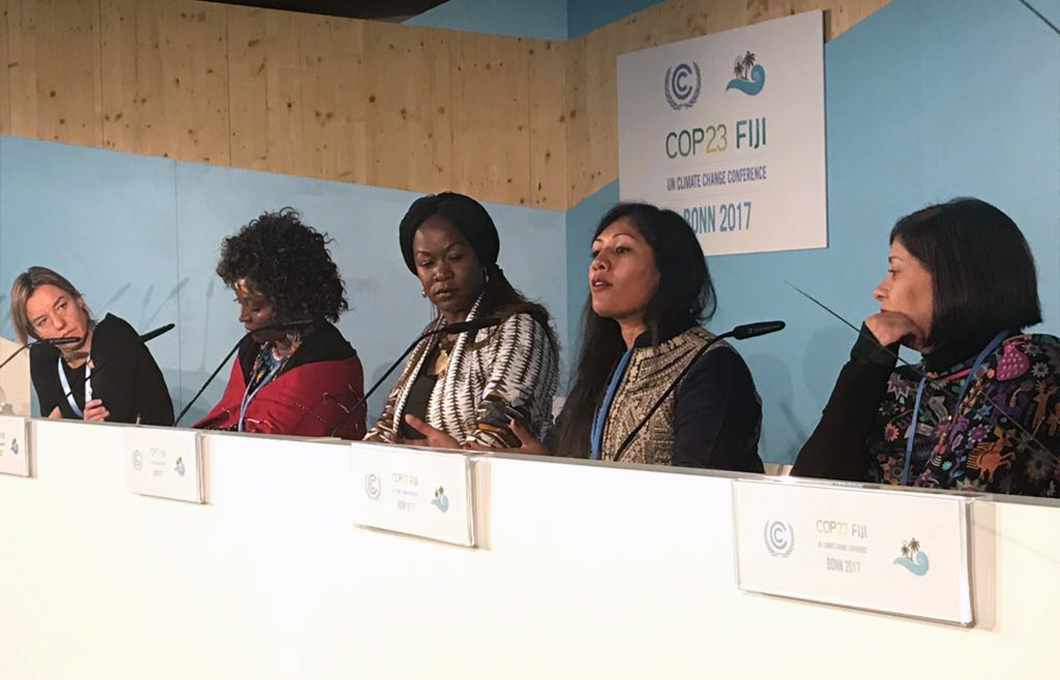On Wednesday, November 15, Sustainable Energy for All hosted a side event on their newly launched a people-centered accelerator to advance gender equality, social inclusion and women’s empowerment. The People-Centered Accelerator aims to enhance clean energy access for the poorest people, who will not be reached by business as usual approaches; by unlocking finance from private and public sources, strengthening collaboration and connections between stakeholders in the energy, gender and social justice sectors and increasing women’s full participation in sustainable energy solutions.
Launched on November 14, Gender Day at COP 23, the accelerator embraces champions the use of social protection systems to deliver sustainable energy services to people living in poverty and marginalisation. This approach was conceived by the Mary Robinson Foundation – Climate Justice and is detailed in the Foundation’s position paper The Role of Social Protection in Ending Energy Poverty. The accelerator will provide a renewed focus on closing the energy access gap by 2030 for the 1.06 billion without electricity and the 3.04 billion without clean cooking today. The accelerator’s focus on women and the most vulnerable in society – those who suffer most from the implications of energy deficits and energy poverty – will facilitate the inclusion of under-represented communities in consultations about energy services, or in the design and delivery of such services.
Speaking at the side event, Rachael Kyte, CEO of Sustainable Energy for All said “We need to incorporate gender equality at the heart of the energy transition by enhancing women’s full participation in sustainable energy solutions at every level.”
Agnes Leina of Illaramatak Community Concerns told the audience of how next door to large scale energy developments in Kenya could be villages without electricity, highlighting how grid based development does not reach poor communities. She said “In the spirit of ‘leaving no one behind’ we must include the women in these villages into the design of our projects.”
Tara Shine, Special Advisor to the Mary Robinson Foundation – Climate Justice, moderated the panel and emphasised the importance of target approaches to achieving universal access to sustainable energy. “We can’t possibly achieve SDG seven if we can’t reach every woman, every man, every boy and every girl – that’s what we mean when we say for all. We won’t be able to do this without targets and strategies to reach the furthest behind” she said.
Related links


